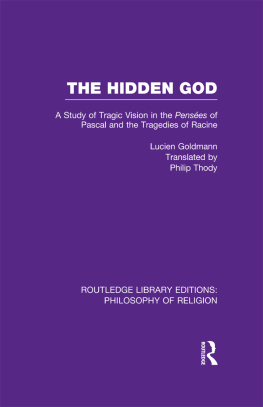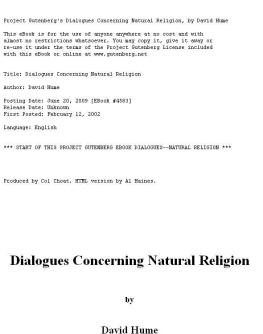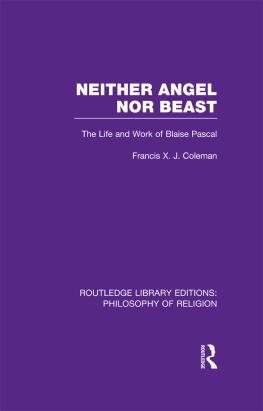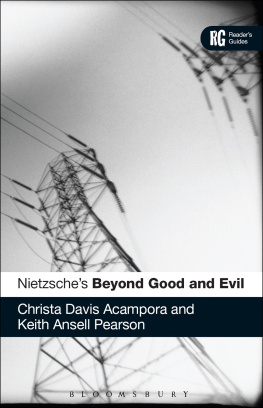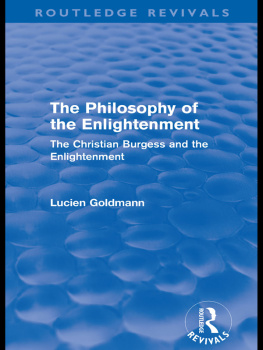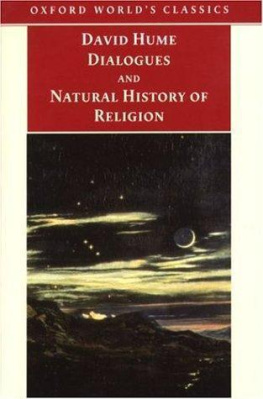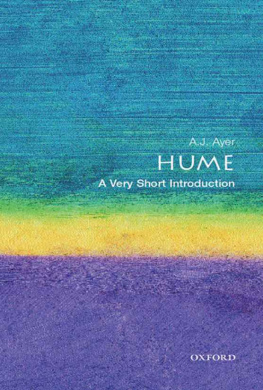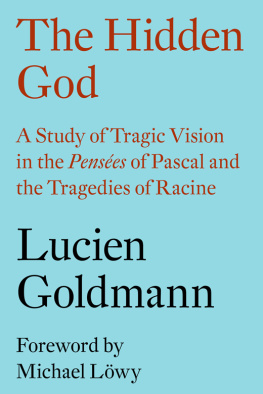Goldmann Lucien - The Hidden God
Here you can read online Goldmann Lucien - The Hidden God full text of the book (entire story) in english for free. Download pdf and epub, get meaning, cover and reviews about this ebook. publisher: Taylor and Francis, genre: Religion. Description of the work, (preface) as well as reviews are available. Best literature library LitArk.com created for fans of good reading and offers a wide selection of genres:
Romance novel
Science fiction
Adventure
Detective
Science
History
Home and family
Prose
Art
Politics
Computer
Non-fiction
Religion
Business
Children
Humor
Choose a favorite category and find really read worthwhile books. Enjoy immersion in the world of imagination, feel the emotions of the characters or learn something new for yourself, make an fascinating discovery.
- Book:The Hidden God
- Author:
- Publisher:Taylor and Francis
- Genre:
- Rating:5 / 5
- Favourites:Add to favourites
- Your mark:
- 100
- 1
- 2
- 3
- 4
- 5
The Hidden God: summary, description and annotation
We offer to read an annotation, description, summary or preface (depends on what the author of the book "The Hidden God" wrote himself). If you haven't found the necessary information about the book — write in the comments, we will try to find it.
The Hidden God — read online for free the complete book (whole text) full work
Below is the text of the book, divided by pages. System saving the place of the last page read, allows you to conveniently read the book "The Hidden God" online for free, without having to search again every time where you left off. Put a bookmark, and you can go to the page where you finished reading at any time.
Font size:
Interval:
Bookmark:

ROUTLEDGE LIBRARY EDITIONS: PHILOSOPHY OF RELIGION
THE HIDDEN GOD
THE HIDDEN GOD
A Study of Tragic Vision in the Penses of Pascal and the Tragedies of Racine
LUCIEN GOLDMANN TRANSLATED BY PHILIP THODY
Volume 15

First published in English in 1964
This edition first published in 2013
by Routledge
2 Park Square, Milton Park, Abingdon, Oxon, OX14 4RN
Simultaneously published in the USA and Canada
by Routledge
711 Third Avenue, New York, NY 10017
Routledge is an imprint of the Taylor & Francis Group, an informa business
English translation 1964 Routledge & Kegan Paul Ltd
Translated from the French Le Dieu Cach
All rights reserved. No part of this book may be reprinted or reproduced or utilised in any form or by any electronic, mechanical, or other means, now known or hereafter invented, including photocopying and recording, or in any information storage or retrieval system, without permission in writing from the publishers.
Trademark notice: Product or corporate names may be trademarks or registered trademarks, and are used only for identification and explanation without intent to infringe.
British Library Cataloguing in Publication Data
A catalogue record for this book is available from the British Library
ISBN: 978-0-415-65969-7 (Set)
elSBN: 978-0-203-52926-3 (Set)
ISBN: 978-0-415-82236-7 (Volume 15)
eISBN: 978-0-203-43169-6 (Volume 15)
Publishers Note
The publisher has gone to great lengths to ensure the quality of this reprint but points out that some imperfections in the original copies may be apparent.
Disclaimer
The publisher has made every effort to trace copyright holders and would welcome correspondence from those they have been unable to trace.
THE HIDDEN GOD
A STUDY OF TRAGIC VISION IN THE PENSES OF PASCAL AND THE TRAGEDIES OF RACINE
by
Lucien Goldmann
translated from the French by
Philip Thody

ROUTLEDGE & KEGAN PAUL
LONDON AND HENLEY
THE HUMANITIES PRESS
ATLANTIC HIGHLANDS, NEW JERSEY
Translated from the French
LE DIEU CACH
First published in England 1964
Reprinted 1976 and 1977
by Routledge & Kegan Paul Limited
39 Store Street
London WC1E 7DD and
Broadway House, Newtown Road
Henley-on-Thames
Oxon RG9 1EN
Printed in Great Britain by
Redwood Burn Limited
Trowbridge & Esher
English translation
Routledge & Kegan Paul Ltd 1964
No part of this book may be reproduced
in any form without permission from
the publisher, except for the quotation
of brief passages in criticism
ISBN 0 7100 3621 3
To
MONSIEUR HENRI GOUHIER
CONTENTS
When I began this work, I had two different but complementary ends in view.
The first was to develop a scientific method for the study of literary and philosophical works, and the second to contribute to the understanding of a particular set of texts which, in spite of considerable differences between them, did seem to me to be closely linked together.
The category of Totality, which is at the very centre of dialectical thought, prevented me from making any rigorous distinction between considerations of method and the actual process of research, since these are simply two aspects of the same question.
It seems to me, in fact, that the method lies wholly in the research itself, and that this research can be valid and fruitful only in so far as it becomes progressively more aware of its own progress and of the conditions which make such progress possible.
The central idea of this book is that facts concerning man always form themselves into significant global structures, which are at one and the same time practical, theoretical and emotive, and that these structures can be studied in a scientific manner, that is to say they can be both explained and understood, only within a practical perspective based upon the acceptance of a certain set of values.
Setting out from this principle, I have shown the existence of one of these significant global structuresthe tragic visionwhich has enabled me to bring out and understand the essence of several theological, ideological, philosophical and literary phenomena, and also to analyse relationships between these phenomena that had not been noticed before.
Thus, in my attempt to bring out the principal features of the tragic vision () and, finally, of Racines theatre.
The reader must judge for himself to what extent the present work has in fact enabled me to fulfil these two initial complementary aims.
I should like now to use this preface to forestall two possible objections. I have, naturally, read a number of works both on the tragic vision and on the nature of the scientific study of literary and philosophical works, and have concentrated especially on the ideas expressed by Marx, Engels, Georg Lukcs and on the view of tragedy put forward by Hegel (particularly in his Aesthetics, and above all in the outstanding chapter on the Ethical Order in The Phenomenology of The Mind). The fact remains, however, that even in the case of Lukcs, there was too much difference between what I was trying to do and the views expressed by these authors to enable me to discuss them in any detail. Thus, in order to avoid complicating the issue, I have studied the early writings of Lukcs only in so far as he is concerned with tragedy, and not at all from the standpoint of his theories on a science of philosophy and literature.
I may also, in my attempt to express dialectical ideas in a terminology which is not yet used to them, have made remarks which appear contradictory. Thus, I have written both that it is impossible to elaborate a scientific sociology, an objective science of facts concerning man, and that we must try to achieve a definite and scientific knowledge of such facts. And, for want of a better word, I have even called such knowledge sociological knowledge. Similarly, I have stated that the Penses were not written for the free-thinker, but that, among their potential audience, we do find free-thinkers etc., etc.
There is in fact no real contradiction between these various statements. Unlike the facts discovered by physics and chemistry, facts concerning man cannot be found out impersonally, from the outside, and by methods which exclude value judgements and practical considerations. These facts must, however, be of an equally certain and reliable nature, and, from this point of view, there is no contradiction between a refusal of scientism and the desire to attain a scientific, historical and sociological knowledge of facts concerning man, a knowledge quite opposed to speculation and belletristic essay writing.
Similarly, Pascal did not write the Penses for the free-thinker in the sense that he was developing an argumentum ad hominem which he himself did not accept and which he did not believe was valid for the believer. Nevertheless, like all philosophical works, the Penses are addressed to everyone who does not think as their author does, and this necessarily includes free-thinkers.
In every case, these contradictions are merely apparent ones which I could have avoided by making up an abstract language that was suited to the immediate needs of the situation, but which would have also been obscure and unintelligible for the lay reader. Too much clarity darkens, wrote Pascal, and I have preferred genuine clarity to any purely formal and apparent clarity.
Next pageFont size:
Interval:
Bookmark:
Similar books «The Hidden God»
Look at similar books to The Hidden God. We have selected literature similar in name and meaning in the hope of providing readers with more options to find new, interesting, not yet read works.
Discussion, reviews of the book The Hidden God and just readers' own opinions. Leave your comments, write what you think about the work, its meaning or the main characters. Specify what exactly you liked and what you didn't like, and why you think so.

